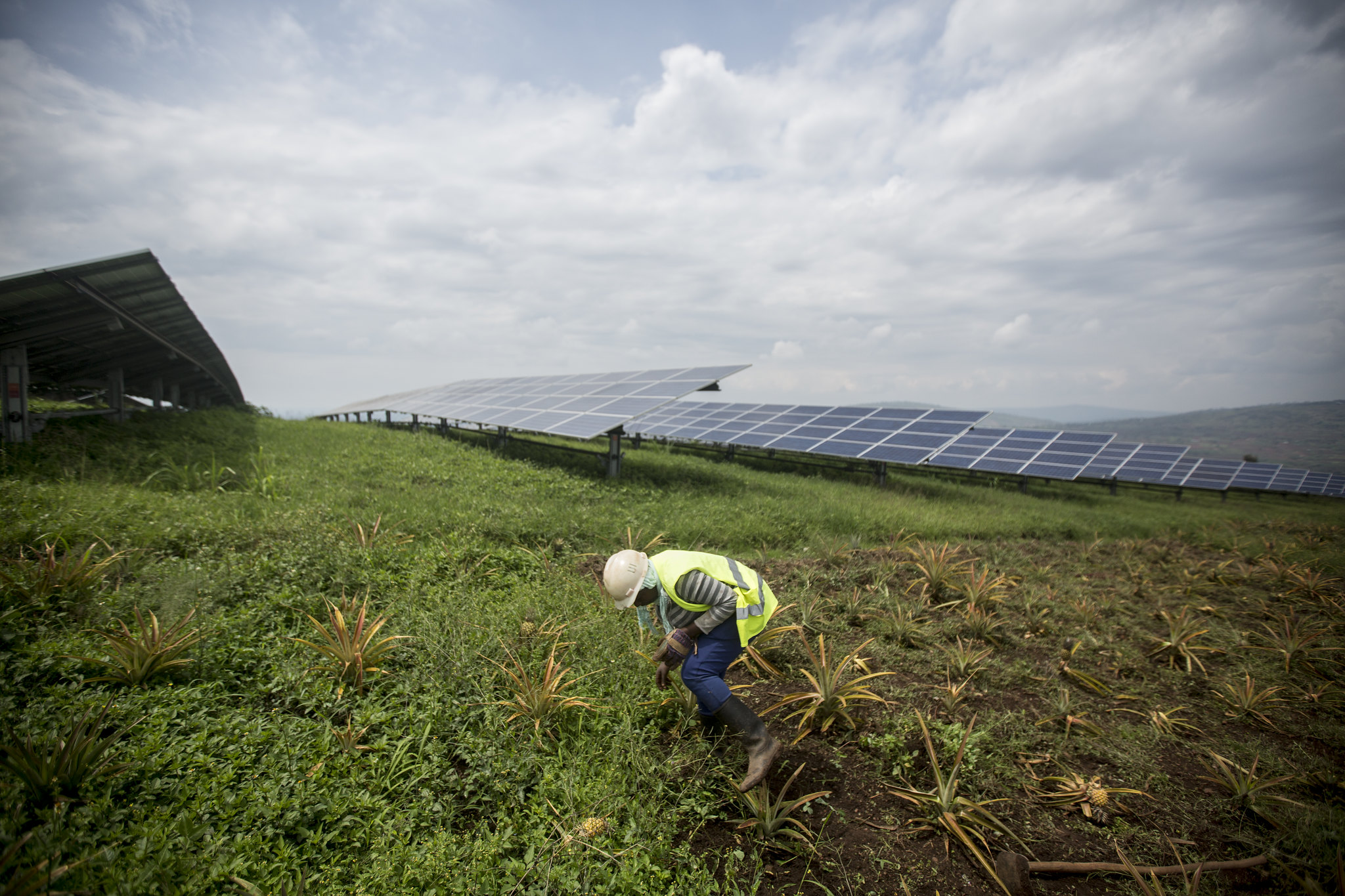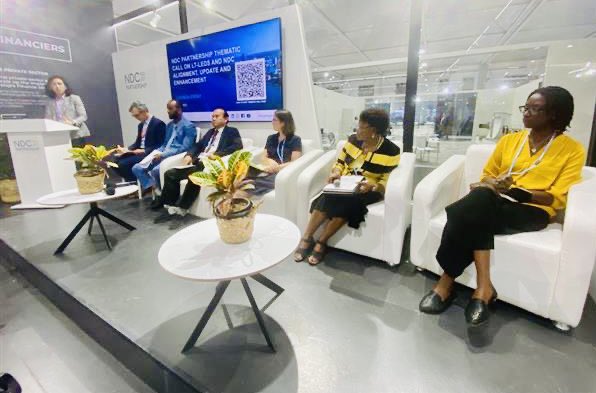The NDC Partnership Supports Developing Countries to Align Long-term Development With Climate Action

- The NDC Partnership launches Thematic Call to support developing countries in designing their LT-LEDS and increasing the ambition of their Nationally Determined Contributions (NDCs)
- The NDC Partnership is working with United Nations Framework Convention on Climate Change (UNFCCC) on a trial programme with Jordan, St. Vincent and Zambia
As global leaders gather this week in Sharm El Sheikh for COP27, developing countries renew their calls for creating sustainable development pathways to advance urgent climate action. Despite global progress, there is a critical need for increased climate ambition, as countries’ climate commitments alone are insufficient to meet the 1.5°C target above pre-industrial levels established in the Paris Agreement.
To avoid a high-climate risk future, countries must make immediate transformational shifts in policy and investment. To catalyse urgent action, the NDC Partnership has today launched its Thematic Call to support developing country members through two interconnected fronts: preparing, updating and refining Long-term Low Emissions Development Strategies (LT-LEDS), and enhancing the quality and increasing the ambition of their Nationally Determined Contributions (NDCs).
With momentum from the Glasgow Climate Pact, LT-LEDS are prepared and implemented by individual countries on a national scale to achieve net zero emissions by mid or near mid-century. LT-LEDS are powerful policy instruments for countries to identify and prioritize systemic changes, providing an opportunity for countries to develop robust long-term strategies that connect to NDC processes and link economic development with climate action.
To execute these transitions, countries need to identify finance needs, understand and assess policy implications and related reforms, and develop enabling frameworks to mobilise investment. In response to the specific needs of countries, the NDC Partnership will offer comprehensive and tailored support with the aim to provide clear and long-term policy direction designed to drive sustainable development.
Building on the success of the NDC Partnership’s Climate Action Enhancement Package (CAEP), through which 64 countries enhanced their NDCS, the Thematic Call will help coordinate support for countries to design, submit and implement LT-LEDS that are aligned with equally ambitious NDCs.
The NDC Partnership is now operationalising this comprehensive approach by partnering with the UNFCCC on a trial with three countries, Jordan, St. Vincent and Zambia, to help develop their LT-LEDS in alignment with NDCs and an emphasis on the Transparency Framework. The trial programme will draw on the active engagement of these countries in the NDC Partnership to advance their stated needs and accelerate their LT-LEDS, which are currently in development. The trail will help shed light on the best way to develop an integrated approach that links LT-LEDS and NDCs, providing examples of best practice.
Minister of Environment for Jordan, His Excellency Dr. Muawieh Radaideh, said “We are thrilled to be part of the NDC Partnership-UNFCCC joint project on the LT-LEDS and NDC Thematic Call. We are eager to accelerate our climate action by highlighting linkages between our commitment to transparency, NDC implementation and our long-term planning for sustainable development.”
NDC Partnership Global Director Pablo Vieira commented: “Through our Thematic Call, the NDC Partnership is inviting requests from developing countries to facilitate the development of LT-LEDS. LT-LEDS are powerful policy mechanisms that effectively link the future development of countries to climate, guiding national development towards resilience and net-zero emissions by or around 2050. Countries, through their updated NDCs, have shown a vital increase in their ambition and commitment to climate action. By aligning their NDCs with long-term strategies, countries can integrate climate action into their policy direction, creating a framework to attract and mobilize critical climate finance.”
The NDC Partnership brings together more than 200 members, including more than 120 developed and developing countries and more than 80 institutional Members, to create and deliver on ambitious climate action that helps achieve the Paris Agreement and the Sustainable Development Goals (SDG). Governments identify their NDC implementation priorities and the type of support that is needed to translate them into actionable policies and programs. Based on these requests, the membership offers a tailored package of expertise, technical assistance, and funding.
This collaborative response provides developing countries with efficient access to a wide range of resources to adapt to and mitigate climate change and foster more equitable and sustainable development. The NDC Partnership is built on the premise of collective action: by acting together, we achieve more.

For media enquiries:
Caitlin Pinkard / caitlin.pinkard@ndcpartnership.org
About the NDC Partnership
The NDC Partnership brings together more than 200 members, including more than 115 countries, developed and developing, and more than 80 institutions to create and deliver on ambitious climate action that help achieve the Paris Agreement and the Sustainable Development Goals (SDGs). Governments identify their NDC implementation priorities and the type of support that is needed to translate them into actionable policies and programs. Based on these requests, the membership offers a tailored package of expertise, technical assistance, and funding. This collaborative response provides developing countries with efficient access to a wide range of resources to adapt to and mitigate climate change and foster more equitable and sustainable development.
